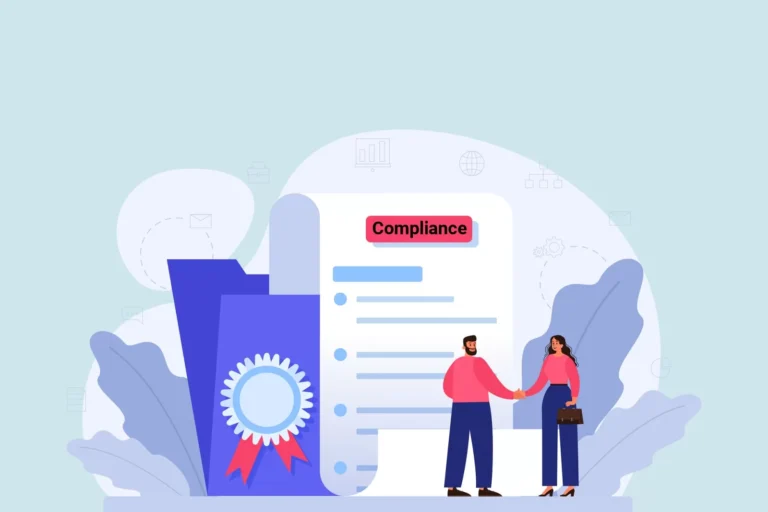Staying compliant with regulations is a must for any business. The fines for non-compliance can be hefty, not to mention the potential damage to your reputation. Thankfully, avoiding these pitfalls doesn’t have to be complicated. With the right steps, you can keep your business on the right track. Let’s walk through ten straightforward ways to ensure you’re always in the clear.
1. Upgrade Outdated Phone Systems
If you’re still using legacy POTS (Plain Old Telephone Service) lines, it’s time to rethink your approach. Many industries now require modern, reliable communication systems that comply with regulatory standards. Airdial replacements are an excellent way to stay ahead and avoid compliance fines. These systems ensure compliance with emergency call requirement, and offer added reliability without the high maintenance costs of outdated lines. Don’t wait for a regulatory wake-up call—evaluate your phone system today.
2. Stay on Top of Employee Training
Your team plays a crucial role in maintaining compliance, but are they up to speed on the latest regulations? Regular training sessions are essential. Whether it’s data protection, workplace safety, or industry-specific standards, keep your staff informed. Online courses and in-person workshops can both work wonders for ensuring everyone knows their responsibilities.
3. Maintain Accurate Records
Compliance often boils down to documentation. Missing or inaccurate records are a major red flag for auditors. Make sure you have a robust system in place to keep your records organized and up to date. Whether it’s employee contracts, health and safety reports, or financial statements, staying organized minimizes risk and simplifies audits.
4. Conduct Regular Audits
Speaking of audits, how often do you conduct internal checks? Regular self-audits can help you identify any gaps before they become serious issues. Look at key areas like tax compliance, labor laws, and data protection. Catching a small mistake now could save you a significant fine later.
5. Implement Strong Data Protection Measures
With cybersecurity threats on the rise, protecting sensitive data is more critical than ever. Compliance regulations like GDPR and HIPAA have strict requirements, and breaches can lead to severe penalties. Use encryption, secure access controls, and regular software updates to safeguard your business data. Don’t forget to have a data breach response plan in place—being prepared is half the battle.
6. Understand Industry-Specific Regulations
No two industries are the same when it comes to compliance. Whether you’re in healthcare, finance, or retail, you’ll need to meet specific regulations tailored to your field. Familiarize yourself with the guidelines that apply to your business and keep an eye on any updates. Joining industry groups or subscribing to newsletters can be a great way to stay informed.
7. Stay Updated on Local and Federal Laws
Laws and regulations aren’t set in stone. They evolve over time, and what was compliant last year might not be today. Make it a habit to review any changes to local, state, or federal laws that could impact your business. Consulting with legal professionals or compliance experts can provide clarity and ensure you don’t miss anything important.
8. Use Compliance Management Software
Managing compliance manually can be overwhelming, especially for larger businesses. Fortunately, there’s software designed to help. Compliance management tools can track regulations, schedule audits, and maintain records, all in one place. Automating some of these tasks reduces human error and ensures nothing slips through the cracks.
9. Build a Culture of Accountability
Compliance isn’t just about rules—it’s about fostering a culture where everyone understands the importance of doing things the right way. Encourage open communication about compliance challenges, and make sure employees feel comfortable reporting potential issues. Rewarding adherence to compliance standards can also motivate your team to stay vigilant.
10. Work with Experts
Sometimes, it’s best to call in the pros. Compliance consultants or legal advisors can provide tailored advice based on your industry and business size. They’ll help you understand complex regulations, identify risks, and implement solutions that align with your goals. While there’s a cost involved, it’s often far less than the potential fines for getting things wrong.
Keeping Compliance Simple
Business compliance doesn’t have to be intimidating. By following these steps, you’ll be well-prepared to meet regulatory requirements and avoid fines. Think of compliance as an ongoing part of your business strategy, not just a one-off task. When you invest time and effort into staying compliant, you’re not only protecting your bottom line but also building trust with your customers, employees, and partners. So, which step will you tackle first?
